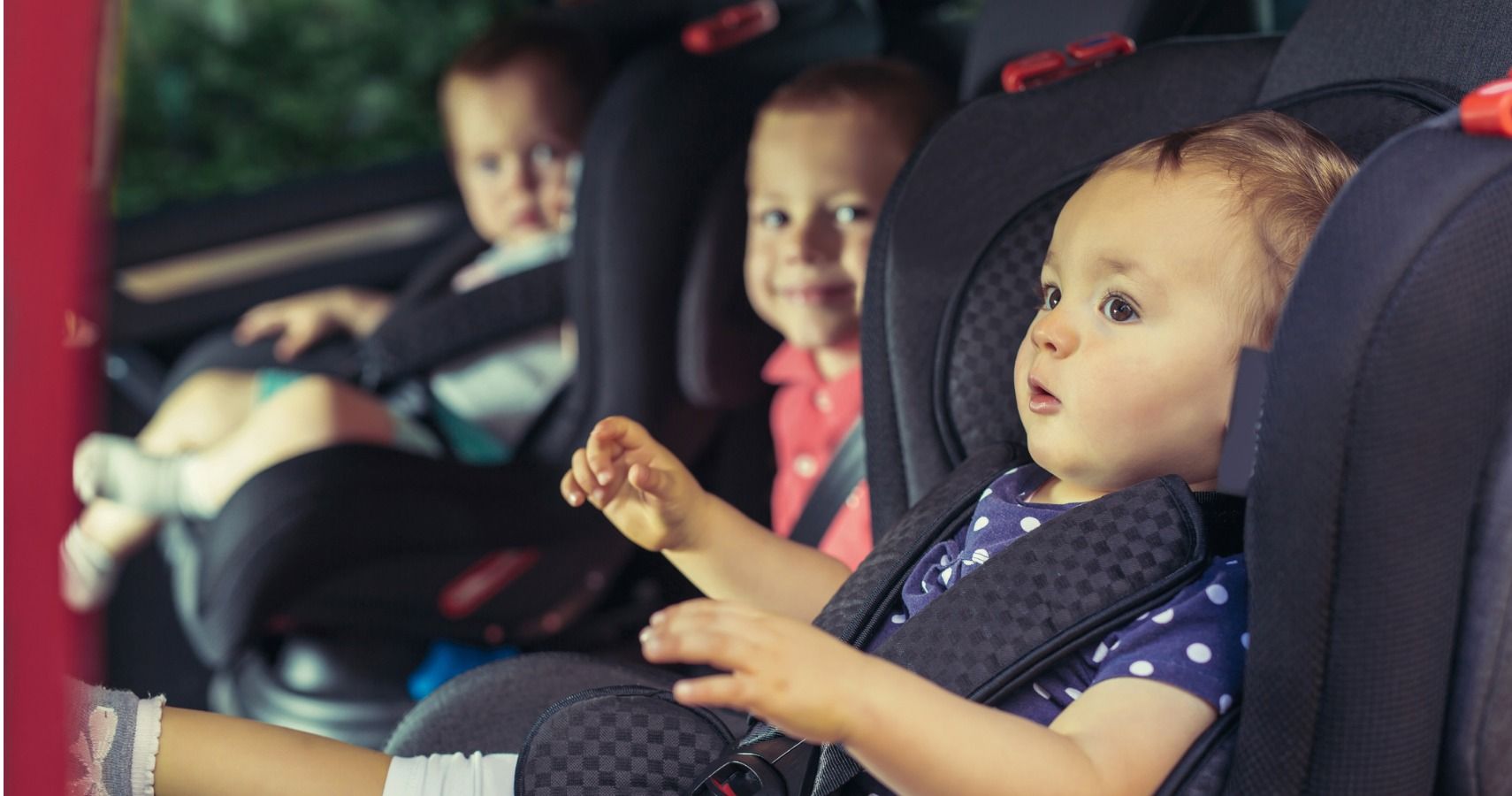We all know that car seats are a vital part of keeping children of all ages protected whenever you are driving anywhere. So much so that you would never think of even getting into the car and turning the engine on without strapping your little ones into the car seat, hearing the clasps snap together, alerting you that they are in for a safe ride. It's a habit and one of the healthiest ones for our little ones. But what happens whenever that car seat that's meant to be one of the most trusted things you own for your baby isn't as safe as you though? Well, that's a pretty scary thought and something that scientists are finding to be true about newer models.
In a recent study, scientists from Indiana University looked at 18 different car seats and found that the majority of the newer models contained potentially hazardous flame retardants. Specifically, "15 of the 18 car seats that were tested contained flame retardant chemicals that are thought to cause negative health effects in children," according to Fatherly.
Yes, digest that information for a second there. We place our children into these car seats probably every single day at least one, and now there are findings that suggest they are filled with chemicals that could have a negative impact on our kids' health. Honestly, it's pretty infuriating.
The findings aren't just alarming for parents, but has raised some red flags for parents, too. According to co-author of the study Marta Venier of IU’s School of Public and Environmental Affairs, these are comprised of new replacement flame retardants, which are often marketed as safer alternatives. However, these chemicals have not gone through rigorous safety testing and may pose risks to children’s health.
According to the Federal Motor Vehicle Safety Standard 302, all children's car seats must meet the same flammability requirements that car interiors do - something that is primarily achieved through the use of these flame retardants. However, there isn't much know at this time in regards to health repercussions on what was found in the car seats, leaving scientists to be concerned about them being toxic to children, causing things like brain development and hormone issues.
The chemicals found can impact the children through two different ways: through being breathed in and during the warmer months, they can be absorbed through the skin or mouth (if the child chews on the seat). At this time, the study has not revealed which brands these chemicals were found in, but it's safe to say that kids shouldn't be spending any lengthy periods of time in their car seats.
READ NEXT: Why Putting A Winter Coat On A Baby And Strapping Them In A Car Seat Is Dangerous

